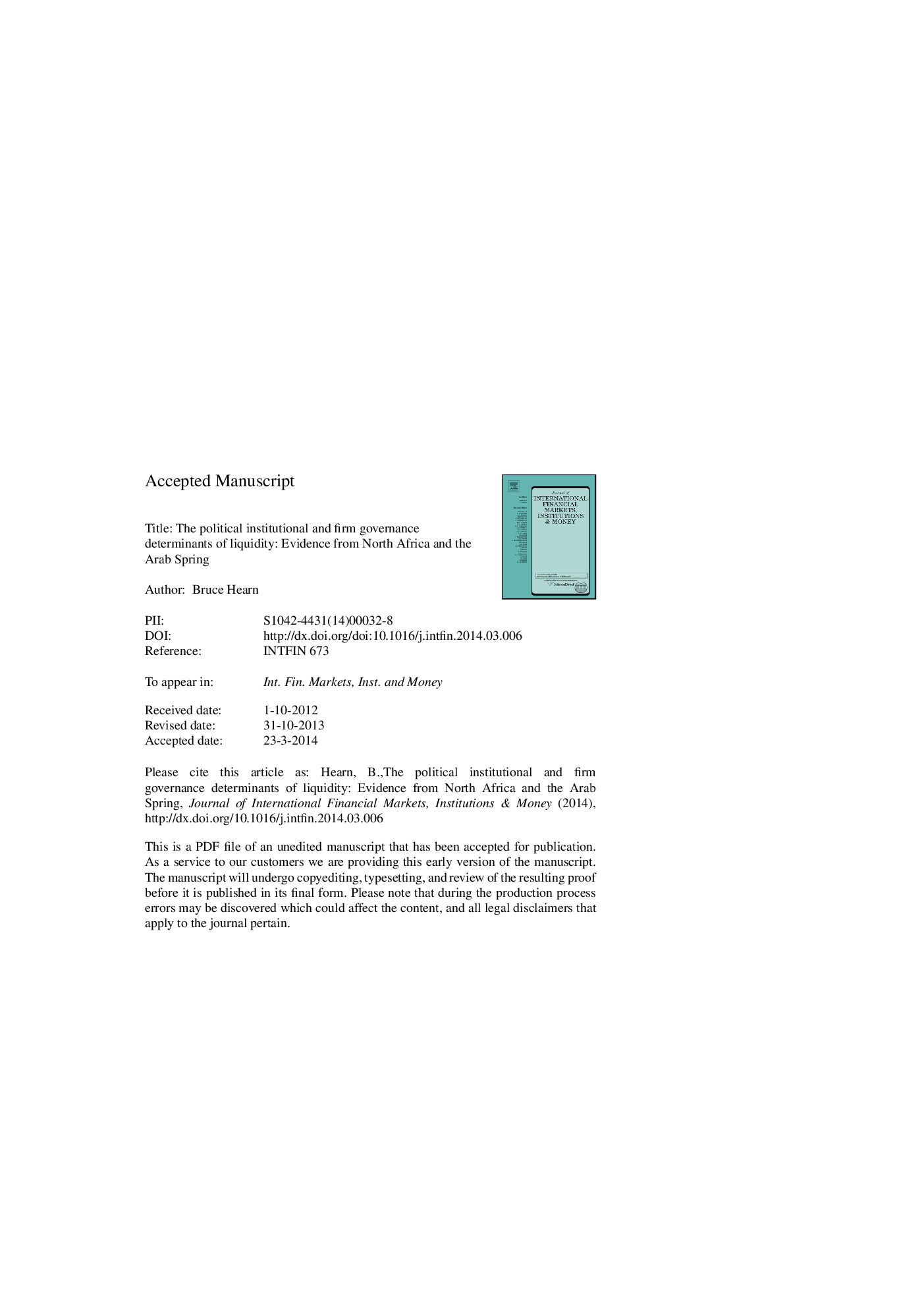| کد مقاله | کد نشریه | سال انتشار | مقاله انگلیسی | نسخه تمام متن |
|---|---|---|---|---|
| 7364866 | 1479116 | 2014 | 55 صفحه PDF | دانلود رایگان |
عنوان انگلیسی مقاله ISI
The political institutional and firm governance determinants of liquidity: Evidence from North Africa and the Arab Spring
ترجمه فارسی عنوان
تعیین کننده های نهادهای سیاسی و سازمانی حاکم بر نقدینگی: شواهد از شمال آفریقا و بهار عربی
دانلود مقاله + سفارش ترجمه
دانلود مقاله ISI انگلیسی
رایگان برای ایرانیان
کلمات کلیدی
موضوعات مرتبط
علوم انسانی و اجتماعی
اقتصاد، اقتصادسنجی و امور مالی
اقتصاد و اقتصادسنجی
چکیده انگلیسی
This study undertakes a unique comparison into the relative efficacy of four well established liquidity measures, namely turnover, proportion of daily zero returns, Amihud (2002) and Liu (2006), in explaining the bid-ask spread plus brokerage costs when powerful and common firm governance mechanisms are taken into account as controls. These are representative of ownership of listed firms by state, long term foreign partners, entrepreneurial founders, single family entities, extended family groups and business networks, domestic and foreign venture capitalists. An additional control for firms within business network controlled by former Tunisian premier, Ben Ali, and Morocco's royal family is also included. Using a unique sample of all listed firms across the equity markets of Egypt, Morocco, Tunisia and Algeria I find evidence of equity capital rationing during the Arab Spring period of political upheaval. Less well regulated SME markets such as Morocco's marche croissance have liquidity-based transactions costs attributable to Arab Spring four times those of the marche principal while those in Egypt's Nilex are twenty times those of the prestigious EGX30 index. Finally the greatest changes in political risks associated with aggregate liquidity across the Arab Spring are democratic accountability, military in politics, and law and order.
ناشر
Database: Elsevier - ScienceDirect (ساینس دایرکت)
Journal: Journal of International Financial Markets, Institutions and Money - Volume 31, July 2014, Pages 127-158
Journal: Journal of International Financial Markets, Institutions and Money - Volume 31, July 2014, Pages 127-158
نویسندگان
Bruce Hearn,
